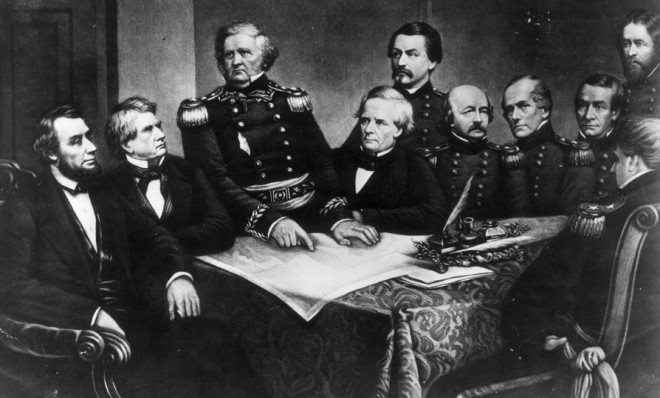Today in history: The federal income tax is born
Probably not the happiest day in American history

A free daily email with the biggest news stories of the day – and the best features from TheWeek.com
You are now subscribed
Your newsletter sign-up was successful

Aug. 5, 1861: Needing cash to finance the Civil War, President Abraham Lincoln signed the Revenue Act — imposing the first federal income tax. Lincoln and Congress agreed that all incomes over $800 would be taxed at a 3 percent rate. Lincoln knew that taxes would be unpopular. But he recognized that America needed to pay for its wars.
Aug. 5, 1963: President John F. Kennedy signed a treaty with Great Britain and the U.S.S.R. banning nuclear tests in the atmosphere, space, and underwater.
Aug. 5, 1974: President Richard Nixon admitted withholding information on the Watergate break-in. He resigned four days later.
The Week
Escape your echo chamber. Get the facts behind the news, plus analysis from multiple perspectives.

Sign up for The Week's Free Newsletters
From our morning news briefing to a weekly Good News Newsletter, get the best of The Week delivered directly to your inbox.
From our morning news briefing to a weekly Good News Newsletter, get the best of The Week delivered directly to your inbox.
Aug. 5, 1981: President Ronald Reagan fired 11,359 striking air traffic controllers, saying they were violating federal law.
Quote of the Day
"Republicans are for both the man and the dollar, but in case of conflict the man before the dollar." -Abraham Lincoln
More from West Wing Reports...
A free daily email with the biggest news stories of the day – and the best features from TheWeek.com
-
 The ‘ravenous’ demand for Cornish minerals
The ‘ravenous’ demand for Cornish mineralsUnder the Radar Growing need for critical minerals to power tech has intensified ‘appetite’ for lithium, which could be a ‘huge boon’ for local economy
-
 Why are election experts taking Trump’s midterm threats seriously?
Why are election experts taking Trump’s midterm threats seriously?IN THE SPOTLIGHT As the president muses about polling place deployments and a centralized electoral system aimed at one-party control, lawmakers are taking this administration at its word
-
 ‘Restaurateurs have become millionaires’
‘Restaurateurs have become millionaires’Instant Opinion Opinion, comment and editorials of the day